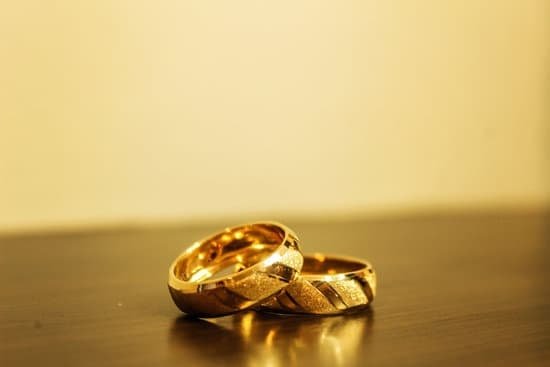Introduction
Making and wearing costume jewelry can be both an enjoyable and cost-effective way to accessorize an ensemble. However, if not cared for properly, costume jewelry can become tarnished or discolored over time. Fortunately, there are many ways to help prevent this. One is to use non-tarnishing materials when making the jewelry.
Non-tarnishing materials such as stainless steel, titanium, gold-filled, plated silver or rhodium provide a great solution because they resist tarnish and corrosion extremely well, allowing the wearer to enjoy the jewelry for longer. The plating of these materials is thicker than the standard plating on regular sterling silver which ensures that it will last longer without losing its shine and sparkle. As well as being durable, these materials also have a beautiful lustrous finish which makes them ideal for creating stunning pieces of costume jewelry.
The durability of non-tarnishing metals means that it can hold up better through wear and tear than traditional metals like sterling silver and copper which can require more frequent polishing. Both everyday care and occasional professional cleaning will help ensure that costume jewelry remains looking its best for years to come. It is also important to store your pieces in airtight containers away from moisture which can help keep them from tarnishing prematurely.
In conclusion, using non-tarnishing materials when making costume jewelry is a great way to create beautiful pieces that are designed to last longer without needing constant maintenance or repair. With proper care and storage, you can rest assured knowing that your handmade accessories will look as great in twenty years time as the day they were made!
Choose the Right Materials
When choosing materials for costume jewelry, it is important to select natural metals that are known to resist tarnishing. For example, sterling silver and gold tend to naturally resist oxidation over time compared to cheaper metals such as zinc or brass which corrode quickly. When selecting a metal be sure to ask if the product has been plated with another layer of metal as this can quickly make a piece tarnish or discolor over time.
Choose Protective Coatings – Silicone and Wax for Comprehensive Protection
Adding a protective coating of silicone or wax to your costume jewelry can help prolong its life expectancy. Though these coatings may not completely prevent tarnishing from happening, they will provide superior protection against moisture, dirt, dust and everyday wear-and-tear. Applying a protective coating should be done by following the manufacturer’s recommended guidelines for best results. Additionally, these coatings should be re-applied regularly in order to ensure optimal performance for years to come.
Avoid Combinations That Increase Tarnishing
When combining different metals to make costume jewelry, it’s important to keep in mind that some materials increase the potential for tarnishing. Copper and bronze often cause other metals, such as silver and nickel, to corrode or tarnish more quickly. Therefore, it is best to avoid phrases like ‘mixed metal’ or ‘alloy’ when selecting materials for your costume jewelry. These can indicate a blend of dissimilar metals, which is usually not ideal for creating pieces that won’t tarnish easily. It’s also recommended to keep your combined metal substances as clean as possible during the production process since dirt and grime can accelerate corrosion.
Protection From the Elements
To make sure that your costume jewelry does not tarnish, there are a few steps you can take. First, it is important to protect them from the elements. Keeping your pieces away from damp or humid environments and storing each piece inside a cloth bag or pouch will help reduce their exposure to moisture. Furthermore, wearing them with lotions and perfumes can also contribute to oxidation of the metals and reduce the longevity of the jewelry items; this should be avoided as much as possible.
Another technique to keep costume jewelry safe is to regularly clean it using products intended for cleaning jewelry rather than using general household cleaners. Special polishing creams are effective at removing dirt and grime build up when applied gently with a soft cloth or brush. You can also use warm soapy water and a toothbrush for tough spots. But remember not to scrub too hard as this could result in scratching or removal of plating on the metal surfaces of your pieces . After cleaning, rinsing in cold water will ensure that all residue is removed from the item before air drying orbuffing lightly with a cloth. Lastly, sealing it off with any kind of finishing sprays specifically made for jewelry will act as an extra layer of protection against tarnishing.
Cleaning Tips
One of the best ways to prevent your costume jewelry from tarnishing is to clean it regularly. Cleaning jewelry will help make it last longer, no matter what type of jewelry you’re wearing. A natural cleaner is best for cleaning costume jewelry because chemical cleaners can sometimes damage the finish or coatings found on costume jewellery.
For example, olive oil and baking soda can be a great combination for cleaning costume jewelry. Apply a small amount of olive oil onto your Jewelry, using a soft cloth and rub it in gently. This will loosen any dirt or build-up that’s on the jewelry. Then sprinkle some baking soda over the part with oil and use the soft cloth to rub away all of the tarnish; lifting and buffing away any additional dirt or buildup as you go. Rinse the piece completely with lukewarm water afterwards, then pat dry and leave out in indirect sunlight to fully dry before storing away again.
Another great way to keep your costume jewelry from tarnishing quickly is simply preventing contact with liquid altogether; avoid getting perfume, hairspray, lotions, oils, chemicals and detergents on the paper when you wear or store them away; these substances contain ingredients which could react unfavorably to cause patchiness or discoloration when exposed to metals used in costume jewelry like copper or iron. Should you come into contact with liquid somehow during wear, ensure that you wipe your piece straight away using a dry cloth followed by a slightly dampened cloth if necessary, but avoid over-wetting as this could cause deterioration over time as well.
Maintenance Practices
If you have costume jewelry and want to preserve its integrity and physical appearance, there are several practices you can use to ensure tarnish and oxidation don’t take their toll.
One helpful practice is to store your costume jewelry in a clean, dry, invironment. To truly protect it from oxidation, you can store your pieces individually in airtight plastic bags or anti-tarnish fabric cases with anti-tarnish strips. If you choose this option, it’s important that the container is large enough for the entire piece of jewelry so that any exposed metal does not come into contact with the strip or bag.
It’s also key to never store costume jewelry near high humidity or moisture, as moisture can increase oxidation rates drastically. Consider purchasing an airtight storage solution such as an organizer box or specialized chest made out of wood, acrylic or even leather specifically designed for jewelry storage—these can provide superior protection and work great at keeping humidity out. Additionally, taking off all your costume jewelry before showering and swimming is essential for preventing tarnish on metals believed to be less oxiadation resistant such as copper and brass alloys.
Another way to protect against oxidiation is by polishing your jewlery regularly. You can use a silver polishing cloth designed specially for costume jewlery which should be able to remove most of the grime and dirt that has accumulated on the surface of your pieces. For tougher tarnishes, mild soap diluted down with warm water may help restore some of your metal’s shine back but be sure to avoid any hands soaps as they typically have too much acidity. Finally finishing up with a soft dry microfiber cloth will help buff away any lingering dirt and remove oils from our skin – both of which can contribute to oxidation over time if left unchecked and untouched!
Conclusion
When selecting costume jewelry, it is important to take the tarnishing potential into account. Costume jewelry by its very nature is made of inexpensive materials that can easily tarnish; however, with proper care and attention, you can ensure your pieces will last for years to come. Here are some tips for selecting costumes jewelry that won’t tarnish:
1. Look for metals and finishes labeled “stainless steel,” “rhodium-plated,” or “anti-tarnish.” These types of materials are great for costume jewelry as they resist corrosion and do not react with air to form an oxidation layer that would cause tarnishing.
2. Check what kind of plating is used in the costume pieces if it has been plated with a metal such as gold or silver. Make sure the plating is thick enough to protect the underlying base material from wear and tear, which would make the piece more prone to tarnishing in the future.
3. Opt for pieces made from strong metals such as tungsten carbide or titanium rather than weaker metals such as nickel or brass which can be quite prone to tarnishing when exposed to air and moisture over time.
4. Avoid costume pieces that have a lacquer coating on them as this coating can wear off over time due to contact with other objects leading to corrosion and eventual tarnishing of your piece.
5. Protect your costume jewelery in storage by wrapping it in acid free tissue paper and keeping it away from sunlight, heat and moisture which could accelerate any existing damage or tarnishing mechanisms on your piece!

Welcome to my jewelry blog! My name is Sarah and I am the owner of this blog.
I love making jewelry and sharing my creations with others.
So whether you’re someone who loves wearing jewelry yourself or simply enjoys learning about it, be sure to check out my blog for insightful posts on everything related to this exciting topic!





